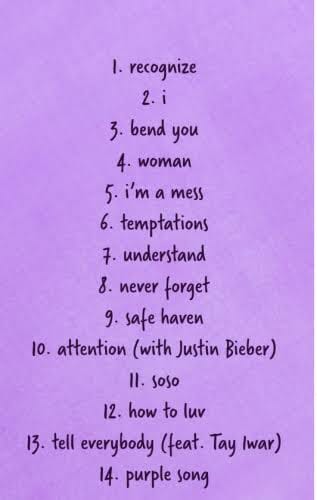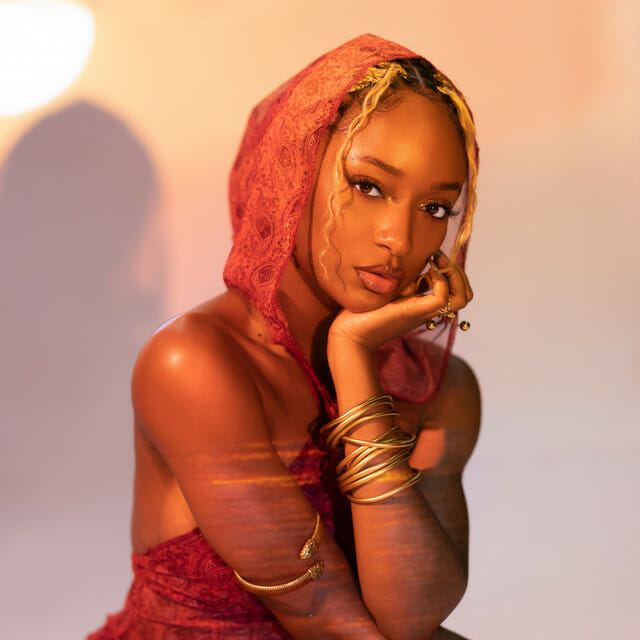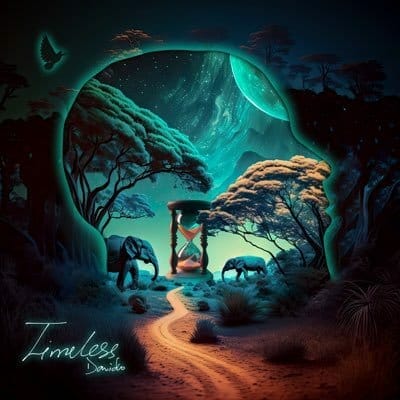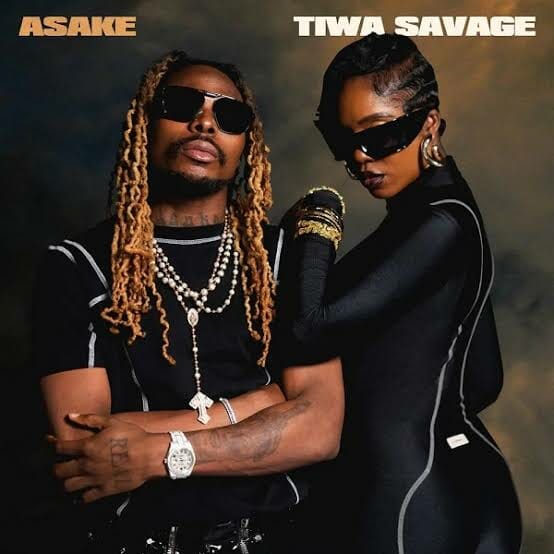A 23-year-old performer with honey-toned skin first caught the attention of fans of Afropop in 2020. Nearly little was known about him other than the fact that he was a part of the vibrant Port Harcourt scene. Though the music had many appealing elements, led by a sweet voice and extremely clever songwriting, it was clear why people liked it. In the most depressing period of our shared history, “Bad Influence” and “You” created the myth of Stanley Omah Didia and thrust him in front of an attentive generation of love-deprived people.
To his credit, Omah Lay began his breakthrough year with ‘Get Layd,’ a record brimming with enjoyable sonic combinations. The initial pair of songs were buffered by “Lo Lo” and “Ye Ye Ye,” while “Damn” went on to become a huge hit. His emo-heavy subjects appeared to be influenced by R&B, yet the musician nonetheless included the pulsing of Port Harcourt’s social life into his own style.
Omah Lay stands out from other students in his class because of his quirks, and it’s even more admirable that he’s eager to share projects. What Have We Done?, his sophomore EP from November of that same year, may not have garnered as much immediate cultural cache as its predecessors, but it confirmed the budding superstar’s special capacity to touch the very core of himself, closely and without editing, while producing a hit as massive as “Godly.” That quality might best be described as raw, although Omah Lay achieves a certain level of finesse by sketching where another artist might overtly paint.

Since the end of last year, rumors concerning his debut album have been circulating. With two EPs under his belt and success in the streaming era, its impending release was heralded as the next phase in Omah Lay’s well-oiled career. He worked with Justin Beiber on the early 2022 single “Attention,” which only served to further his rapidly expanding international fame and coincide with the start of a world tour.
This suggests that the record is a lengthy undertaking that has evolved along with the artist’s constantly fluctuating personal circumstances. Despite the ongoing copyright dispute, Tempoe and P.Priime, who created the pre-album releases of “Understand” and “Woman,” respectively, are perhaps two of the new school sound’s strongest influences. The sound is basic, mid-tempo, and readily incorporated into the melodies of the performer.
Naturally, both albums were top sellers. The album was then unveiled by Omah Lay in July, continuing the practice of using brief rollout intervals to maximize impact. It certainly felt like a full circle moment when it was released because this young man with dreadlocks, whose upbringing we had observed, was now flaunting a full head of hair and his debut album. Recent social media posts demonstrate his perspective of having matured; whereas he used to be quiet, he now speaks with a cutting edge. He skillfully influenced people’s perceptions of the tone of his debut album by writing in one that “My sadness went worse after I had sex with my therapist.”

Boy Alone is fundamentally a song about hedonism and mental health. However, that undersells the aural delights that are crucial to its success as a debut project. We’ve always analyzed Omah Lay through the lens of a lyricist because she conveys feelings and experiences that are difficult to express in words. He is the architect of the house, and the stuffy streets and hot rooms are its windows. However, with his guidance, “Boy Alone” delivers significantly more poetically and philosophically.
The album’s production immediately stands out. It is apparent that Omah Lay prefers the originals in a market that is flooded with mid-tempo beats. Each of the fourteen songs is intricately layered and adjusted to the artist’s unique gestures. They are splattered across a huge canvas of a buttery percussive base collectively. There is occasionally an emo vibe emanating from the center, as on the songs “i’m a mess” and “purple song,” which uses mood-centric guitars to create a sensitive environment. Never Forget and “So So” together brilliantly crank up the tempo and assist guide the album’s flow at key points.
Omah Lay sails effortlessly over each beat with everything set up. Despite the fact that he has only been in our lives for a little over two years, he skillfully weaves a broad and compelling story of youth. He is particularly concerned in exhibiting the listener his associative inclinations by turning melancholy on its several sides. One of them is the paradox of feeling high when he’s feeling low. Omah Lay connects the most intriguing dots and balances his bluntness and wit with extraordinary skill.
The album starts out with aspirational lyrics. He begins “recognize,” limiting the runtime to a minimum as he fluently enters I with the words “Only the true fit recognize/ Only the ship wey believe e no go capsize.” He uses the song’s winding second verse to call for more freedom and a call to “dance from night till morning,” demonstrating how much more aware he is of his toil. The album’s slightly combative tone is formed by the soft sounds, which are also highly affirmative records.
Songs like “never forget” and “temptations” further reinforce his commitment to memory. It makes sense that someone who has experienced combat would have mental scars that, if pricked, could trigger a flood of memories. As she candidly remembers the occasions when his destructive lifestyle punished her sensitivity, the former ebbs toward a lover. He sings with affectionate clarity, “In all of these temptations wey dey inside my life, you still hold me firm, painting her unconditional love while sketching vignettes of not keeping up with his own family.” Given how closely its course mimics life, it’s a vulnerable portrayal that many young guys would be familiar with.
“never forget” turns the focus outward and places Omah Lay in the position of a collective spectator. Though the mood is unmistakably melancholy and contains elements of the oil-related violence that is rampant in his native South, there is still a hint of groove in the keys. He describes his background in the first line and then promotes the Port Harcourt Marine Base while stating that “I know love is battle.” The choruses of “I’ll never forget” that make up the bridge come before a small increase in the song’s speed as Omah Lay begins an interesting rhyme scheme in his second verse. In his closing sentences, he asserts that his knickering occurred “long before Michael Jackson performed Billie Jean.”“my eyes don see the things, ordinary person like you no go believe it/ It’s why I’m cold and shivering; so I hide my pains, my blow, my misery.”
In “Boy Alone,” Omah Lay weaves a series of tragic events together. While there is the usual celebration found in African music in between, there is also a constant undercurrent of gloom. The most impressionistic piece in this sub-category, “i’m a mess,” provides a harsh evaluation of the artist’s mental health. He argues for his fame (“How much million do I make for a living?”), but he is aware that it is ultimately a façade that will come off once he is by himself and confronted by his old demons. On “how to luv,” he is open about his want to love and be in the moment, but even then, the mask reemerges when he says, “But I no believe say you go fit to solve my troubles,” and then adds, cheekily, “But I no believe say you go fit to solve my issues,” later.
The two sexiest tracks on the record, “bend you” and “woman,” showcase this energy in all its glory. The final pre-album single, “woman,” is subtle in nature and alludes to various degrees of closeness utilizing metaphors like rubber bands. When Omah Lay sings, “I hit that pussy motor accident/Road wey lead to happy ending, e no dey hard to kill person,” he makes a comically wise aphorism. This is just a few lines into “bend you,” which is quite brazen in its boldness. Such writing brings to mind “Ye Ye Ye,” which supports the term Omah Lay as one of the better descriptors of wildly fantastic coitus.
It’s crucial to remember throughout it all that Omah doesn’t just want to have sex. The pair of “safe haven” and “soso” are skillful channels for his unrestrained honesty, and those minutes are a pleasant escape from the chains of his own despair. The young man runs over a list of potential rift locations in “purple song,” which is much closer, while pleading with his sweetheart to keep him. He sings with calm conviction, “Only my water fit cool your spirit,” expertly incorporating a sexual allusion into that and the line, “Only your tongue fit lick my soup.” Even if Tay Iwar adds his distinctive feathery touch to “inform everybody,” his host still treads the sexy road.
The voice of Omah Lay is likewise a wonderment. It assumes a lithe and restrained appearance in default mode. He can, however, twist it into anything else, whether as a seductive seducer (“bend you”), a follower of cry-in-the-rain R&B (“temptations”), or a lyricist with rap tendencies (“never forget”). The delivery of Omah Lay is unpredictable, unlike many other aspects of life. Without music, reading his lyrics provides understanding of his unconventional structures but lacks the subtlety of his Ikwerre-influenced adlibs, which frequently make up the most memorable parts of a song.
Boy Alone is a standout debut record. One of the first major albums from Nigeria to examine the phenomenon of mental health on this magnitude, every component of it blends seamlessly into the beautiful total. Omah Lay has always stood out since the release of “Do Not Disturb” in 2019, and with these fourteen songs, he does it even more obviously. Two years after capturing the attention of an entire generation, he is now tightly aligned with their mental and emotional motivations. But “Boy Alone” is a piece of personal art. It’s as intimate as the title implies, and Omah Lay may have produced a great Afropop album by drawing inspiration from the wide-ranging particulars of her young life.
Listen to “BEND YOU” from the “BOY ALONE” album below:










